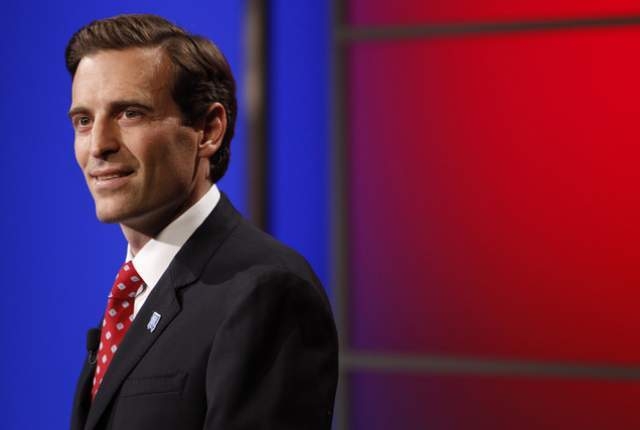No surprise that AG Laxalt joined immigration lawsuit

It’s no surprise Attorney General Adam Laxalt decided to join 25 other states suing the federal government over President Barack Obama’s most recent executive action on immigration.
After all, Laxalt pretty much said he was going to sue. A lot.
During the 2014 campaign, Laxalt said he’d sue the federal government if it listed the sage grouse as an endangered species. He told the Pahrump Valley Times in July that “there are many examples around the country where state attorney generals [sic] are suing the Obama administration and suing in particular federal agencies and challenging in many cases their view that they have unlimited power … and I think that is an imperative role for the attorney general’s office.”
And after he was elected in November, he told the Review-Journal suing the feds would be a priority. “It’s important for me to make sure the attorney general’s office is adequately defending the state from any federal legislation that’s hurting our jobs and hurting our economy and that’s taking away our liberty,” Laxalt said. “That’s a priority of mine — to reset the bargaining table just to make clear that we as a state have full input in future federal actions.”
Not only that, but Laxalt also signed a letter written by the Republican Attorney Generals Association condemning the president’s immigration action, which extends temporary protection from deportation to the families of children previously protected by the Deferred Action for Childhood Arrivals (DACA) program. However, Laxalt said at the time he wasn’t planning to sue, but rather expected Congress to work on a legislative solution.
Instead, Laxalt announced his decision to join Texas v. United States of America on Monday. “As Nevada’s chief legal officer, I am directed by Nevada’s Constitution and laws to take legal action whenever necessary ‘to protect and secure the interest of the state.’”
Yeah, about that.
First, precisely who is Laxalt’s client in this litigation? It’s certainly not Gov. Brian Sandoval, who didn’t ask Laxalt to get involved and in his own statement seemed to distance himself from the idea of suing. (“He [Sandoval] continues to believe that the best course of action is a legislative solution rather than legal action,” gubernatorial spokeswoman Mari St. Martin wrote. But will that belief extend to Sandoval ordering Laxalt to withdraw from the lawsuit, as Nevada Democratic Party Chairwoman Roberta Lange demanded?)
Instead, it looks like Laxalt acted in his own discretion to make a political point. (Again, no surprise: He told the Pahrump Valley Times in that July article that he believed the attorney general “… has the individual authority to file lawsuits on behalf of the state without the governor.”)
Second, what unique, legally cognizable interest of Nevada’s was Laxalt protecting? How is Nevada allegedly affected by the president’s executive order in a way that, say, co-plaintiffs Utah or Idaho are not? And if Nevada has no unique interest, why join the lawsuit, other than to say “me, too!”? (Yes, Nevada has more illegal immigrants per capita than other states, but that by itself doesn’t create a unique interest.)
Third, despite the list of plaintiffs now numbering 26, there’s a powerful argument the lawsuit is wrong. The president, by his own admission, is not granting amnesty to anyone; the program simply re-prioritizes deportations (which have been more robust under Obama than any previous president) so that the parents of eligible so-called DREAMer kids can stay in the United States with their kids. The real quibble at the heart of the litigation is not whether Obama is taking care that the laws are faithfully executed, but rather the manner in which he’s going about executing them. And history shows plenty of precedent for presidential executive action.
I called Laxalt’s office to ask some of these questions, but Laxalt’s director of communications, Patty Cafferata, said he was in meetings planning a law-enforcement summit for next Thursday, and she demurred on answering in his stead. “I can’t speak for him,” she said. I declined an offer by Cafferata to submit written questions to the attorney general.
Perhaps we can let Laxalt speak for himself: After his election, Laxalt told the Review-Journal he wanted to pick the right battles and focus only on the most important things in order to be successful. “It’s such a great office to get a lot of things accomplished. My problem is to make sure we don’t do too much.”
Indeed.
Steve Sebelius is a Las Vegas Review-Journal political columnist who blogs at SlashPolitics.com. Follow him on Twitter (@SteveSebelius) or reach him at 702-387-5276 or ssebelius@reviewjournal.com.












